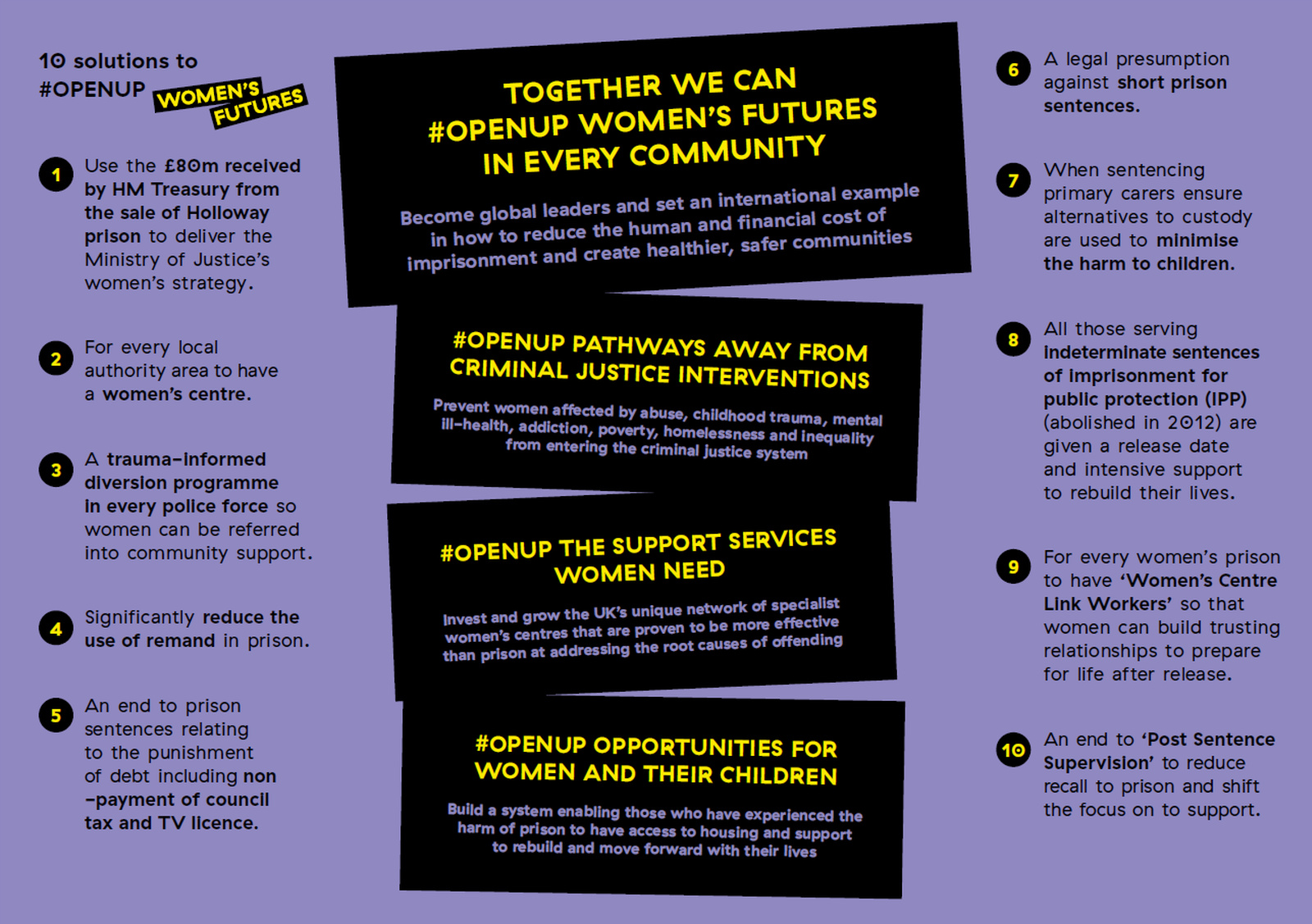
[BLANK] and #OPENUP Women's Futures
This blog was first published with Clean Break.
Following on from our visit to Clean Break's production [BLANK] we share our thoughts on the play and how the themes entwine with our core campaign #OPENUP.
It’s a ripple effect isn’t it? We’ve been sentenced but our children have been sentenced with us. It is a struggle.
—The preceding words from one woman imprisoned in one of the 12 women’s prisons in England are repeated to us, at Women in Prison, by so many. The experience of motherhood from within prison is often pained with guilt, anxiety and isolation for both the mother and the child left behind on the outside. Nine out of 10 children will be forced to leave their home as a result of their mother’s imprisonment to live with relatives or to go into care. This can have devastating consequences for those children, as well as family bonds which can take a lifetime to repair.
[BLANK] so powerfully showcases this ripple of harm that radiates from the experience of imprisonment, cutting through relationships and severing opportunities to move forward with your life. The play also tells of the complex social circumstances and harmful histories, often rooted within complex family relationships, which chart a course for women to come into contact with the criminal justice system. Childhood abuse and neglect, poverty, domestic violence, mental ill-health, harmful substance use, poverty, inequality are all tightly weaved together to lead you down an inevitable path.
In the UK, we have a chronic overuse of the prison system. Through the decimation of community support, housing, mental health services and refuges, we are now in a position where we, as a society, turn to the police to step in to plug these gaps in services; it is the police who are called in response to someone in mental health crisis or someone who is sleeping on the streets. [BLANK] very clearly demonstrates how all-too-often women feel they have nowhere to turn to – no more room at the domestic violence refuge, too little understanding of post-partum depression, or a family member not equipped to support a daughter’s addiction. Women in Prison has engaged with thousands of women in our prison system who went out and shoplifted just so they could get a roof over their head in prison or so they could escape from a violent partner. Women seek refuge in prison because they have few choices and this comes at great personal risk as imprisonment causes harm to your mental and physical health. Additionally, after prison it will be a greater struggle to find a home or job, your social circumstances and opportunities will have been reduced further.
Women in Prison campaigns to radically reduce the women’s prison population and end the harm caused by prison to women, their families and our communities. Our #OPENUP Manifesto offers 10 solutions to achieve this with investment in community support services and opening up pathways away from criminal justice interventions at its heart.

It is little known that the UK is globally unique in having a network of specialist Women’s Centres that provide support for women affected by the criminal justice system. These Centres provide a community for women to come together to support each other, eat lunch, take part in a crafting workshop, or gardening, meditation, knitting as well as find counselling for childhood trauma, support with addiction, mental ill-health, advocacy to find housing or support with parenting, debt advice, CV writing workshop. These Centres are packed with activities and support in an environment that does not judge and does not punish. They enable women to address the root causes that lead to offending and prevent them from coming into contact with the criminal justice system in the first place. But they are also used by the Police to divert women out of the criminal justice system into community support and give Magistrates an alternative to sending individuals to prison. Women’s Centres are proven to reduce offending and enable women to move forward with their lives far more effectively than a prison sentence ever could.
There are around 35 Women’s Centres across the UK, there are many areas of the country that do not have access to this support and the ones that exist need urgent investment to be sustained. Through investment and Government policy that acts on the evidence we have, the very real possibility to achieve something that we can be really proud of and set an international standard in how to reduce the human and financial cost of imprisonment and create healthier, safer communities for all of us. Our vision is for our #OPENUP vision to be delivered so that the [BLANK] of the future is packed with stories of support, opportunities and hope for women and their children.